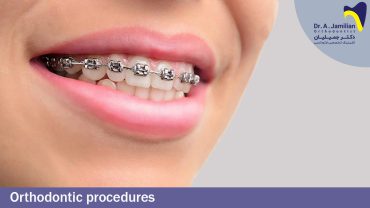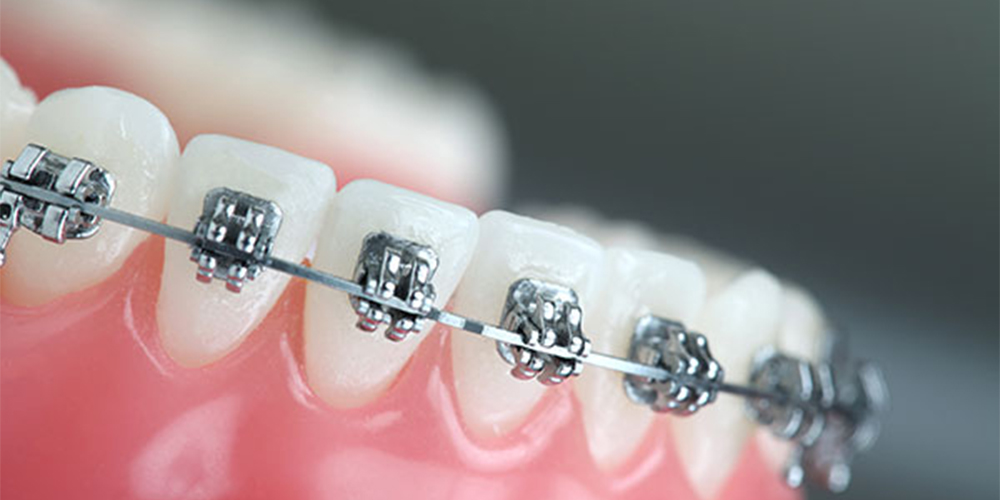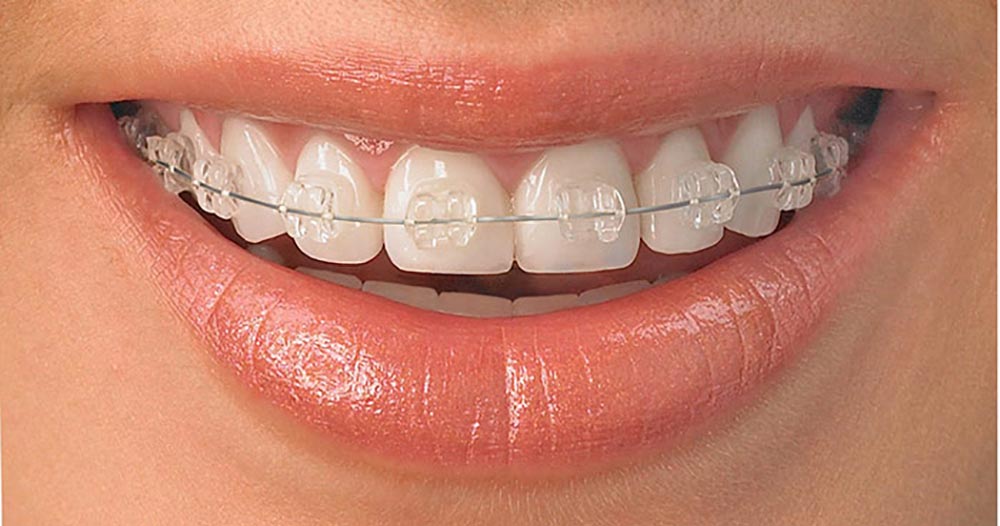

In this day and age, orthodontics is among the most common treatments for malocclusions. The malocclusions are treated either by fixed or removable orthodontic appliances. Orthodontists can choose the best option from the existing orthodontic procedures based on the patient’s age and type of malocclusion.
Fixed orthodontics using metal brackets is a standardized orthodontic procedure widely applied to treat malocclusions in most patients. In this treatment, brackets are attracted to teeth using special archwires to apply pressure to teeth to gradually push jaws towards their normal position.


Another orthodontic procedure is to use tooth-colored ceramic brackets. As the name implies, the brackets used in this method are the same color as the teeth. The transparency of ceramic brackets gives a pleasant appearance to the orthodontic appliance. The brackets are transparent but archwires are visible, thus others can notice that you have an orthodontic appliance inside your mouth but the brackets are less noticeable than metal ones.


The invisalign orthodontics is among the most popular orthodontic procedures in which as the name suggests, transparent and invisible brackets are used to gradually move teeth toward their normal position.
One of the main features of such brackets is their ease of use. Invisible orthodontics is highly popular among individuals who do not want others around them to notice their orthodontic appliance.
Damon orthodontics is one of the newest developments in orthodontic procedures in which the braces have a groove through which the archwire passes. This orthodontic system can move teeth toward the normal and desired position. Having its unique mechanism, Damon orthodontics is similar in appearance to fixed orthodontics with metal or ceramic brackets.
The archwire is not connected to brackets using a ligature in Damon orthodontics allowing patients to maintain good oral hygiene more easily. Despite claims about the shorter period of treatment in Damon orthodontics than other orthodontic methods, there has been no scientific evidence or reference to prove this claim. It is believed that such claims made by the manufacturer of Damon appliances are for advertising purposes only and intend to increase sales of such brackets. The main disadvantage of Damon Orthodontics is the high and hefty cost.
In lingual orthodontics, also known as internal braces or intra-dental orthodontics, brackets and archwires are placed behind the teeth to make them less noticeable. Lingual orthodontics treats malocclusions based on the same mechanism as fixed orthodontics. These brackets are located on the inner surface of the tongue occupy part of the tongue and may bother the patient. However, the main advantage of such brackets is that they cannot be easily noticed by others.
Removable orthodontic appliances are among the best treatment options for treating malocclusions or maxillofacial abnormalities. Individuals with maxillomandibular abnormalities can contemplate functional orthodontics as a recommended treatment option, especially before puberty.
Only the orthodontist can determine which orthodontic procedure can bring you the best therapeutic result. Each orthodontic procedure has its advantages and can be used in certain cases. Orthodontic procedures help you correct any possible malocclusion and considerably increase the lifespan and health of your teeth. The most important step taken by an orthodontist is to select the best and newest orthodontic procedure for the treatment of malocclusions.
After installing orthodontic brackets on the teeth, patients may experience discomfort in their teeth or…
Orthodontic brackets are intended to help correct dental and oral abnormalities; however, their efficacy relies…
The last teeth to erupt, wisdom teeth, occasionally fail to emerge and end up fully…
Orthodontic O-rings are small elastic bands that wrap around orthodontic brackets to hold the orthodontic…
The most important question people have before starting treatment for dental braces is how long…
Artificial intelligence in dentistry refers to the use of advanced algorithms and techniques to analyze…